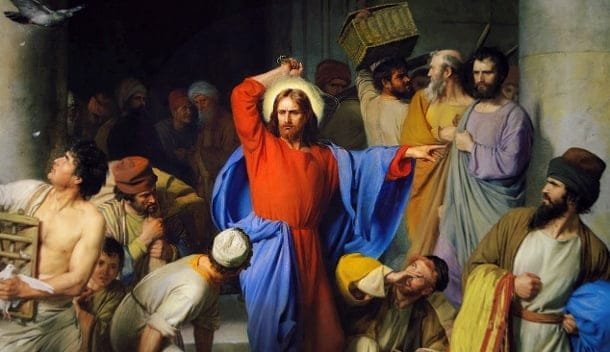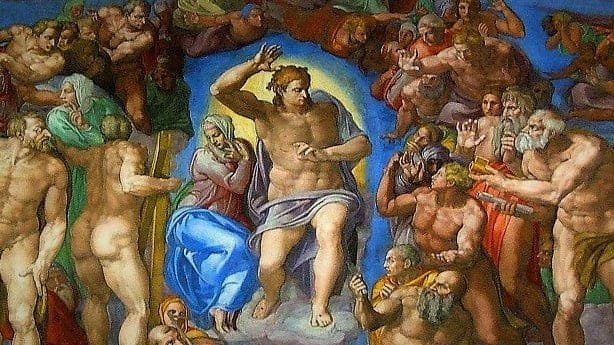DAILY GOSPEL COMMENTARY: “JESUS REPROACHES PEOPLE FOR THEIR UNBELIEF” (Lk 7:31-35).

JESUS REPROACHES PEOPLE FOR THEIR UNBELIEF
Jesus said to the crowds: “To what shall I compare the people of this generation? What are they like? They are like children who sit in the marketplace and call to one another,
‘We played the flute for you, but you did not dance. We sang a dirge, but you did not weep.’
For John the Baptist came neither eating food nor drinking wine, and you said, ‘He is possessed by a demon.’ The Son of Man came eating and drinking and you said, ‘Look, he is a glutton and a drunkard, a friend of tax collectors and sinners.’ But wisdom is vindicated by all her children
Gospel Commentary from the Navarre Bible, Commentary to the Gospel of St. Luke (with permission)
- 31-34 Note of Mt 11:16-19.
- 16-19 Making reference to a popular song or a child’s game of his time, Jesus reproaches those who offer groundless excuses for not recognizing him. From the beginning of human history the Lord has striven to attract all men to himself: “What more was there to do for my vineyard, that I have not done in it?” (Is 5:4), and often he has been rejected: “When I looked for it to yield grapes, why did it yield wild grapes?” (Is 5:4).
- Our Lord also condemns calumny: some people do try to justify their own behaviour by seeing sin where there is only virtue. “When they find something which is quite obviously good,” St Gregory the Great says, “they pry into it to see if there is not also some badness hidden in it” (Moralia, 6, 22).
- The Baptist’s fasting they interpret as the work of the devil; whereas they accuse Jesus of being a glutton. The evangelist has to report these calumnies and accusations spoken against our Lord; otherwise, we would have no notion of the extent of the malice of those who show such furious opposition to Him who went about doing good (Acts 10:38). On other occasions Jesus warned his disciples that they would be treated the same way as he was (cf. Jn 15:20).
- The works of Jesus, and John the Baptist, each in their own way, lead to the accomplishment of God’s plan for man’s salvation: the fact that some people do not recognize him does not prevent God’s plan being carried into effect.
- 16-19 Making reference to a popular song or a child’s game of his time, Jesus reproaches those who offer groundless excuses for not recognizing him. From the beginning of human history the Lord has striven to attract all men to himself: “What more was there to do for my vineyard, that I have not done in it?” (Is 5:4), and often he has been rejected: “When I looked for it to yield grapes, why did it yield wild grapes?” (Is 5:4).
- 35 The wisdom referred to here is divine Wisdom, especially Christ himself (cf. Wis 7:26; Prov 8:22). “Children of Wisdom” is a Hebrew way of saying “wise men”; he is truly wise who comes to know God and love him and be saved by him — in other words, a saint.
- Divine wisdom is revealed in the creation and government of the universe and, particularly, in the salvation of mankind. Wise men “justifying” wisdom seems to mean that the wise, the saints, bear witness to Christ by living holy lives: “Let your light so shine before men, that they may see your good works and give glory to your Father who is in heaven” (Mt 5:16).
VIDEO COMMENTARY
TOPIC: DO YOU LOVE BECAUSE OF WHAT YOU CAN GET OR BECAUSE OF WHAT YOU CAN GIVE?
Stay updated: subscribe by email for free TO OUR NEW WEBSITE catholicsstrivingforholiness.org (PUT YOUR EMAIL IN THE SUBSCRIBE WIDGET).
If you need some resources regarding a particular topic, feel free to use the search WIDGET which has access to thousands of posts, categories and tags on Catholic spirituality.
Cordially inviting you as well to follow www.fb.com/Catholicsstrivingforholiness. and share our posts to help more people in their Christian faith and life.
Thanks and God bless you and your loved ones! Fr. Rolly Arjonillo.


